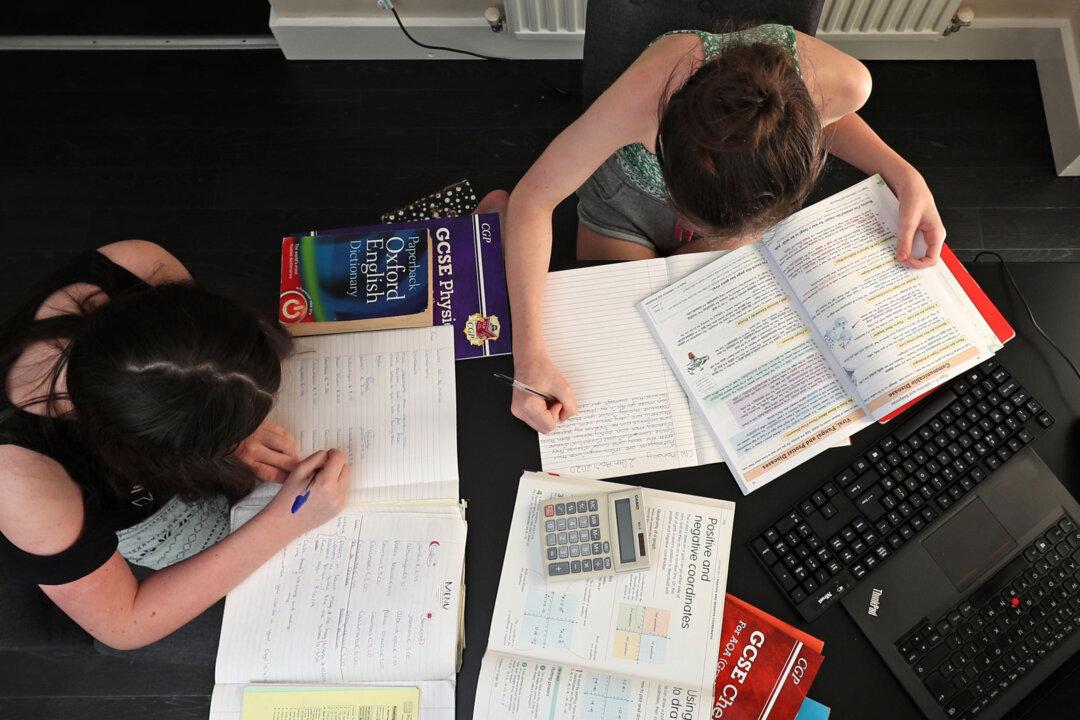When schools in England were closed during lockdowns, 4 out of 10 children didn’t receive the minimum teaching as set out in the government’s own benchmarks for remote learning time, according to a new report.
The report by the Institute of Fiscal Studies (IFS), published on Sept. 6, comes as pupils return to school in England after the summer break with pandemic restrictions now mostly lifted.





